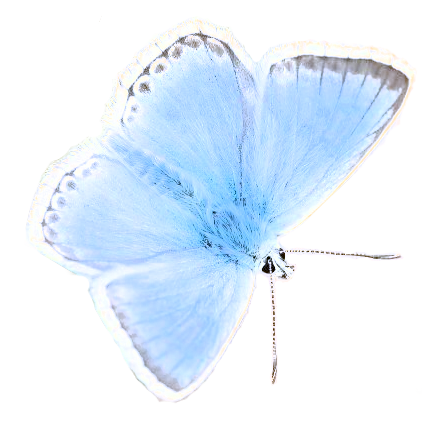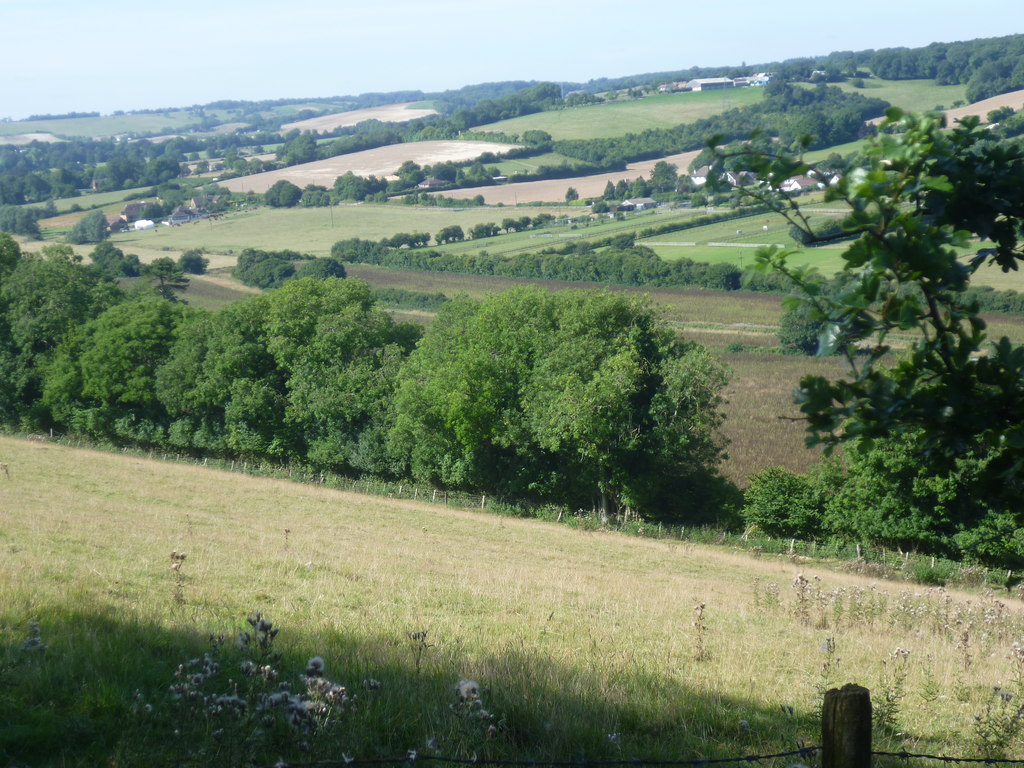 Heward Wilkinson
Heward Wilkinson

Dr. Heward Wilkinson, D. Psych, UKCP Fellow, UKCP Registered Psychotherapist, is an Integrative Psychotherapist. On my website I begin by describing the therapeutic services I offer. You will also find biographical information, papers and links to books which give an idea of my vision of life and psychotherapy. Enjoy!
My book is published by Karnac and available in all three formats and through the usual outlets:
http://www.karnacbooks.com/product/the-muse-as-therapist-a-new-poetic-paradigm-for-psychotherapy/25803/
I am what is called an Integrative practitioner. This means that to the best of my ability, in dialogue with my client, I seek to develop a way of working which is most appropriate to your individual style and way of being. Approaches I draw from In developing a way of working with you I draw especially from Humanistic and Existential approaches, Psychoanalytic approaches, and also from more solution-oriented approaches such as Cognitive and Behavioural approaches and NLP (Neuro-Linguistic Programming). I also offer a form of Philosophical Practice, and a form of Poetry or Literary Therapy. Broadly, in Humanistic and Existential work the emphasis is on what is going on in the present, in the here and now, drawing from that creative renewal for living. In Psychoanalytic work the emphasis is upon how past patterns, sometimes from very early, repeat themselves, and also can transform themselves, in the present. More solution-oriented approaches offer specific methods to relieve the symptoms and manifestations of particular problems. Philosophical Practice draws from the philosophical traditions of West and East to address issues about ‘way of life’ in general – which can have a surprising impact on specific life difficulties also. Poetry and Literary Therapy draws from the wisdom of the world’s great literature and art to widen perspective, release feeling in a non-pathologising way, and open doors to new life possibilities. I have written articles, (see later pages), and a book, The Muse as Therapist, currently in press (Karnac Press), about philosophical and literary approaches to psychotherapy and counselling. http://www.karnacbooks.com/product/the-muse-as-therapist-a-new-poetic-paradigm-for-psychotherapy/25803/
In practice there are many overlaps between all these elements. Issues which might bring you into therapy Some people come into therapy simply to support themselves in their lives, and work, to have a place where they are free to unburden themselves and ‘feel and think out loud’, and to facilitate their personal and creative development. There does not have to be a remedial purpose for coming into therapy. None of us is entirely stress free or completely sorted, but at the same time being alive is not an illness! and therapy is not a substitute for life! It is and should be an individual decision whether to come into therapy and not something which is seen as a stigma or a sign of mental disorder. That said, life today is perhaps as challenging as it has ever been, and many people today have real emotional and psychological difficulties. People have difficulties with many emotional and sometimes behavioural areas, which may relate to, among others, Anger, Anxiety, Bereavement and loss, Depression, Domestic violence, Drug and alcohol problems, Lack of confidence, Low self esteem, Obsessional difficulties, Panic attacks, Personality adaptations, Phobias, Relationship difficulties, Sexual identity, Sexuality, Stress, Surviving childhood abuse, Isolation and Withdrawal, Troubles with our Inner World, and others not named here. I also work with Couples, and offer Supervision for Counsellors and Psychotherapists
I have a special interest in the interface between religion, philosophy, the arts, and psychotherapy. I am dedicated to promoting and protecting a serious pluralistic and deconstructionist position and dialogue within the politics of psychotherapy. I believe the structure and conventions of all human organisations, and institutions, are profoundly secondary to individual personal and relational processes, - there being no inherent step from any supposed 'natural order' to human institutions, - but that, within their necessarily imperfect limits, and as a necessary evil, they should be regulated by constitutional and libertarian principles of organisation, ethics, and politics. I try to bring jest and humour to serious matters without dismissing their seriousness. I like people, by and large, and some of them I love, and I love also the natural world, particularly butterflies, the sea and moors and mountains, - as well as music and soccer.
YouTube talks and associated paper
Jane Austen's enigmatic gossamer cobweb of allusions to the Shakespeare Authorship Problem in her novel Emma, which nevertheless I believe gives us enough circumstantial evidence to be reasonably certain she did indeed identify all this - under the radar and with plausible deniability - is now, as far as I have ascertained, comprised in four 'complexes' or rafts of allusion:
References to the I am Ipse - Touchstone - passages of As You Like It in Emma's Epiphany (Ch. 47): First Talk April 2021 Jane Austen and Shakespeare - Mystery Woman Mystery Problem https://www.youtube.com/watch?v=t8-Td00muOY
References to 'Vere' and related allusions to Stanza 81 (the Melville Stanza in Billy Budd) of Andrew Marvell's poem to Lord Thomas Fairfax and his daughter Mary, 'Upon Appleton House', (in Chapters 18 and 19 and 20): Second Talk July 2021 Mystery Woman Mystery Problem
References to the First Folio and Canto 1 of Spenser's Faerie Queene (crucial in the search for Edward de Vere as Senior Poet in 1589) in Ch. 42 'Mr Knightley's Detective Work', also in the Second Talk https://www.youtube.com/watch?v=1Libc0PnXXI&t=2529s
Now we have two talks February 2022 which together discuss the significance of the Anonymisation of the Author of Shakespeare through the fate, progress and relevance of Jane Austen's character Harriet Smith, through whom the allusions to 'Oxford', as erased and anonymised author, are transmitted. It also outlines the role of Samuel Johnson in establishing the orthodox narrative as mainly unassailable.
Talk no 3 https://youtu.be/EtC0LW7g6qo
Talk no 4 https://www.youtube.com/watch?v=uK3JH4SUBLo
Jane Austen, her worlds within worlds, and Shakespearean Authorship – March 2022.pdf
Philosophical Background to the Psychotherapies
PDF versionFreud, Hegel, and Dialectics
Jane Austen – Background re Shakespeare Authorship Question: Talk to DVS April 2021 .pdf
SOF Conference Hartford 2019 Programme and Abstracts .pdf
Why Oxfordians Should be Postmodernists .pdf
Poetic Evidence: First (Rejected) Version of Methodological Commentary .pdf
Background Reading from John Dover Wilson for the De Vere Society Meeting 29 September Talk - "Playing with the Play within the Play in Hamlet" .pdf
Isaac Asimov and Lewis Carroll – Exploring Some Cross-Connected Rabbit Holes .docx .pdf
Alice Lombardo Maher’s Concept of the Transformational Reversal of Conflict Situations: Some Illustrations and Comparisons .pdf
Enactment Theory in Leavis, Wittgenstein, and Derrida, Leavis Society Conference Talk at Downing College Cambridge 19-09-2017, Text, Text Extracts, Video of Talk
Detective Inspector Hamlet .mp3 .pptx .pptx version two
Lawrence, the Mind of Europe, and the English Canon .pdf .docx
'Hamlet' and Historical Consciousness: Towards an Oxfordian Criticism .pdf
Hamlets 'As 'twere' and Literary Criticism - recording of Ashland talk .mp3
Hamlet As Twere - Ashland ppt .pptx
Messiah and Apostle .pdf
Ulysses Still Journeying .pdf
Brief Chronicles Paper on King Lear - Cordelia and Edgar .pdf
Notes on Robert Pirsig, Lila and Historicity .pdf
Why Psychotherapy does not Conceptualise Trans-Modality .docx
Why Psychotherapy does not Conceptualise Trans-Modality .pdf
Projective Identification .pdf
Dissociation of Sensibility and Amnesia for the Shakespeare Authorship .pdf .docx
A Little Lawrence is a Dangerous Thing - Leavis on Lawrence on Shakespeare .pdf .docx
Historic Deceptive Displacements and Shakespeare Authorship Question - Madison Talk 2014 .pdf .docx
Comments on UKCP Shape Review Document HW II .pdf
Methodological Commentary on 'The Muse as Therapist: A New Poetic Paradigm for Psychotherapy' With special reference to Enactment Theory - Final Submission for Metanoia Institute/University of Middlesex Doctorate in Psychotherapy by Professional Studies .pdf
'Psychotherapy Come Of Age: Towards a Serious (mature/integral) Philosophy of Psychotherapy Practice' .doc
Chapter 1) 'Phenomenological Causality', (International Journal of Psychotherapy, 1998) .pdf
Chapter 2) Jaynes and the origins of consciousness (International Journal of Psychotherapy, March 1999)
Chapter 3) Kant’s lineage and Buddhism
Chapter 4) Integration from a Gestalt perspective or Gestalt from an Integrative perspective?
'The Significance of Julian Jaynes and Schizophrenia', 1999 .doc.pdf
'Pluralism as Scientific Method in Psychotherapy'. International Journal of Psychotherapy, Vol 4, Issue 3, November 1999, pp. 313-328
'An inspired resurrection of Freudian drive theory: but does Nick Totton's Reichian 'bodymind' concept supersede Cartesian dualism?' Review article on Nick Totton' s The Water in the Glass: body and mind in psychoanalysis, 2000 .pdf
'Retrieving a posthumous text-message; Nietzsche's fall: the significance of the disputed asylum writing, 'My Sister and I' ', 2002 .pdf
'The autonomy of psychotherapy - Why psychotherapy can be subordinate neither to psychology nor psychiatry', 2003 .pdf
'Impossible meeting: too strange to each other for misunderstanding', Review Article on Darlene Bregman Ehrenberg's The Intimate Edge .pdf
'Psychoanalysis as finite, psychoanalysis as infinite? Psychoanalysis' religious potential': Review Article on 'Who is the Dreamer who Dreams the Dream?', by James S. Grotstein .pdf
'The Shadow of Freud: Is Daniel Stern still a psychoanalyst? The creative tension between the present and the past in psychoanalytic and existential psychotherapies, in Daniel Stern's The Present Moment, and his humanistic- existential partners in dialogue', Review Article on Daniel Stern's 'The Present Moment: In Psychotherapy and Everyday Life' and 'Creative License: the art of Gestalt Therapy', M. SpanioloLobb, and N. Amendt-Lyon, Eds .pdf
Three Editorials per year and Book Reviews Book Reviews and short papers in Self and Society, and The Psychotherapist
Conjoint review of: 'Relationality', by Stephen Mitchell; 'Beyond Empathy', by Richard Erskine, Janet MoursundRebecca Trautmann; 'The Evil We Do', by Carl Goldberg, IJP,Vol. 6, No. 1, 2001 p.8 .pdf
Editorial: To know or not to know: science, beliefs and values in psychotherapy IJP, Vol. 5, No. 2, 2000 .pdf
Editorial: Endings, partings and new beginnings (including Obituary of Carl Goldberg) IJP, Vol. 8, No. 3, November 2003, pp. 169–174 .pdf
Comment upon ‘“Poor girl”: a case of active psychosis’: how therapeutic schemas may limit our work. Eur. J. of Psychotherapy,Counselling & Health Vol 4 No. 2 August 2001 pp.209–214 .pdf
Editorial: the power and danger of pluralism in psychotherapy, IJP, Vol. 7, No. 1, 2002 .pdf
Editorial: Developments in the International Journal of Psychotherapy, IJP, Vol. 8, No. 1, March 2003,pp. 5–7 .pdf
Editorial: Explaining Psychotherapy and Psychotherapeutic Explanation, IJP, Vol. 7, No. 2, 2002 .pdf
Editorial: Pluralism and the basis of freewill in psychotherapy IJP, Vol. 7, No. 3, 2002 .pdf
Editorial: Psychotherapy and its cultural base IJP, Vol. 8, No. 2, July, 2003, pp. 81-83 .pdf
Pluralism as Scientific Method in Psychotherapy International Journal of Psychotherapy, Vol. 4, No. 3, 1999 .pdf
Editorial: doctrinal change in psychotherapy, IJP, Vol. 4, No.3, 1999 .pdf
Editorial: method in our madness, or madness in our method? The many faces of psychotherapy, IJP, Vol. 5, No. 1, 2000 .pdf
Editorial: Psychotherapy, fascism and constitutional history, IJP, Vol. 4, No. 2, 1999 .pdf
Revised Learning Agreement 2008 .doc
The Therapist as Muse: The Muse as Therapist .doc
The Therapist as Muse .doc
Bookshops in the Borgesian Realm .doc
Poetry and Belief .doc
Story and Process: How I became who I am, with the vision that I live, practice, and wish to present Submission for Metanoia Doctorate in Psychotherapy .doc
Phenomenalogical Causality for Re-evaluation .doc
Phenomenalogical Causality for Re-evaluation draft 2 .doc
Phenomenalogical Causality for Re-evaluation draft 3 .doc
A Terrible Beauty is Born RAL 4 and RAL 5 .pdf
Shakespeare Paper .doc
Balls, Bails, and the Buddha .doc